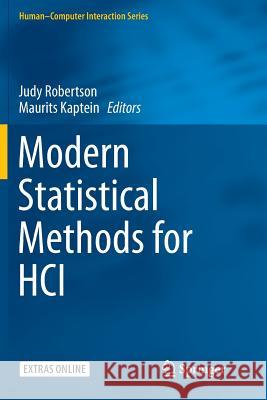Modern Statistical Methods for HCI » książka
topmenu
Modern Statistical Methods for HCI
ISBN-13: 9783319799841 / Angielski / Miękka / 2018 / 348 str.
Kategorie:
Kategorie BISAC:
Wydawca:
Springer
Seria wydawnicza:
Język:
Angielski
ISBN-13:
9783319799841
Rok wydania:
2018
Wydanie:
Softcover Repri
Ilość stron:
348
Waga:
0.51 kg
Wymiary:
23.39 x 15.6 x 1.96
Oprawa:
Miękka
Wolumenów:
01
Dodatkowe informacje:
Wydanie ilustrowane











